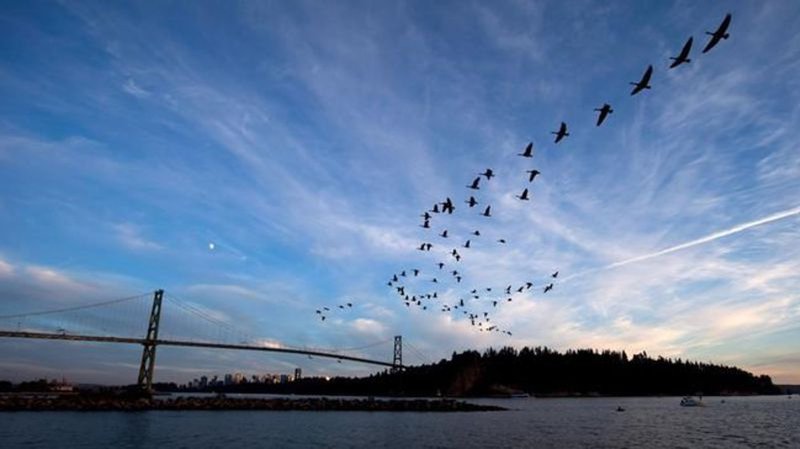
Vancouver residents told to avoid feeding Canada geese, report nests as flocks grow
Vancouver’s parks board is taking action to control the increasing numbers of messy and aggressive Canada geese.
A statement from the Vancouver Board of Parks and Recreation says it is developing a management plan to reduce the number of geese in city parks, beaches and on the seawall.
The board is particularly concerned about humans feeding the birds, saying it brings flocks of geese to high-traffic areas such as Stanley Park and the beaches of English Bay and Sunset Beach.
A key part of the management plan asks residents to identify Canada goose nests on private property so they can be removed or the eggs can be addled, and left in the nest so adults continue to brood, rather than lay again.


